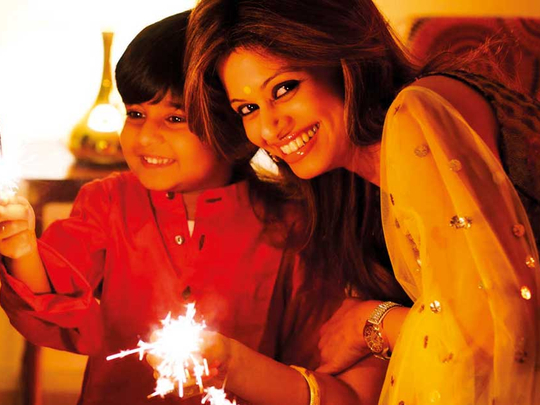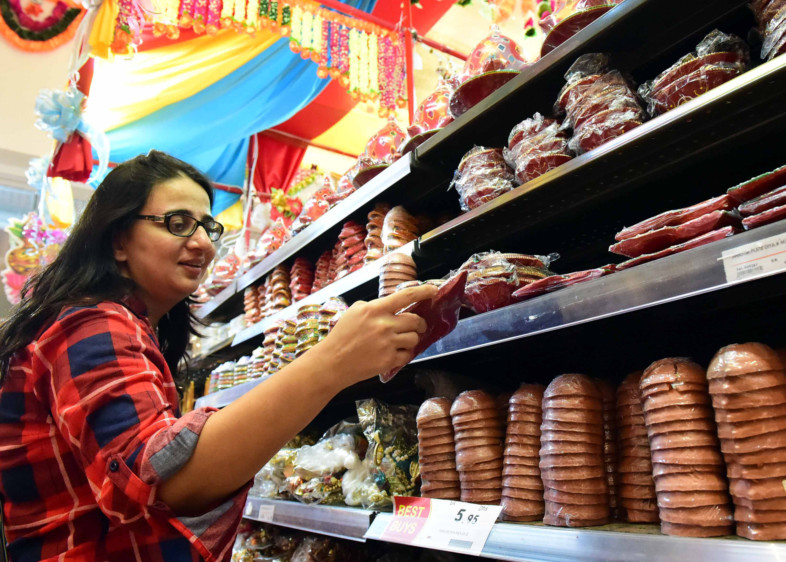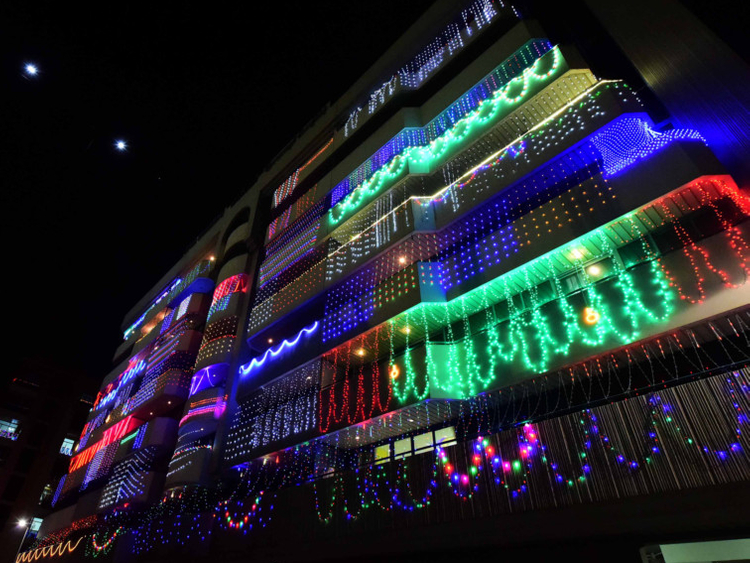
Dubai: Over the years, Diwali, the Festival of Lights, has acquired myriad dimensions for the Indian expatriate community. A symbol of positivity, the festival is a time to banish negativity, spring clean, renovate and paint homes and enjoy the abundance of blessings with food, joy and generosity with family and friends.
In the UAE, the festival is also a symbol of social inclusion. Walking through the bylanes of Bur Dubai festooned with colourful lanterns and fairy lights, the festive spirit is palpable. Like every year, this year too, Diwali continues to be an occasion for the community to come together and share happiness, bonhomie, good food and prosperity.
Most Indian expats in the UAE hold get-togethers at home for friends and colleagues.
For nutritionist and singer Mitun Sarkar and her husband Hemendra Bhatia, Diwali is about creating happy memories for their toddler son Ranbir.
“I have vivid childhood memories of Diwali at my grandmother’s home in Calcutta in the company of cousins. I must have been 10 years old and to this day, I remember all of us gathering on the banks of River Ganga, listening to the soulful songs of the boatman as we took a trip to the other bank at Behrampore. There, we watched some spectacular fireworks, relished hot savouries and coconut sweets. No one really counted calories,” Sarkar said.
“It was a time of plain, unadulterated happiness. This memory is so sharp that whenever I think of Diwali, I go back in time to this day. I have always endeavoured to create such vivid memories for my son, Ranbir.
“I have my parents visiting for Diwali and my mother and I draw intricate designs with rice flour paste as decorations. I get my son to do his Darth Vader and Cider Man drawings. I try to make traditional Diwali sweets at home with a healthy twist and my husband and I get together with friends and sing to our heart’s content. I can’t think of a better way of ushering in the New Year as per the Hindu calendar,” the singer said
Business professional Neelesh and his wife, Rachana Bhatnagar, too feel Diwali is a time to create everlasting memories with family.
Neelesh told Gulf News: “We are five brothers and during childhood, we loved the festive ambience, the firecrackers, the laughter and above all, the traditional sweets and savouries my mother prepared. Celebrations would begin days before and continue for a month. Here in Dubai for 32 years, I have tried to recreate the fun and goodwill from back home. It is a time to socialise and make new friends, attend Diwali parties and call friends home. It is a busy and happy time for all.”
For businessman Paras Shahdadpuri and wife Poonam, Diwali is a festival to uphold the principles of goodness, honesty and sustenance of the human race. Shahdadpuri said: “When we were kids, we were narrated the legends of the Indian deity Rama who vanquished the ten-headed demon Ravana. This I consider a symbol of triumph of the correct and good world order. While I have get-togethers for extended family and friends, the most important thing is the message of nurturing and preserving human values. I take the opportunity to instill this message in my family and staff.”
Sonia and Manish Bakshi represent the second generation in the Bakshi family and continue a 35-year-old family tradition of holding a bright Diwali party for a large community of friends on the lawns of their home.
Sonia told Gulf News: “My mother-in-law and late father-in-law Ashok Bakshi loved the idea of spreading love, light and happiness in the community. They began this tradition of holding a party 35 years ago when they moved to Dubai. I have been in Dubai with my husband for 25 years and have always endeavoured to follow the family tradition. Diwali is a day to let bygones be bygones and make an effort to spread happiness.”
Ambika and Bikram Vohra think of Diwali as an exclusive time for family bonding. They enjoy relaxed meals and time out with their two daughters, their husbands and grandchildren. The Vohras came to Dubai over 35 years ago. “During earlier days, the community was close-knit and everyone visited everyone else at home during Diwali. However, over the years, we feel it is important to spend more time with family. We have a few friends come home for quiet meals,” said Ambika.
Diwali: Then and Now
“In our businesses, we traditionally would worship the deity of wealth and gift gold guineas to our employees. Those days, gold was Rs65 per 10gm and a guinea cost Rs55-60. Most of our staff comprised bachelors who couldn’t afford to celebrate Diwali. Our community get-together and presentation of gifts, followed by distribution of sweets and savouries, was looked forward to by the staff. Most businesses provided sweets and gifts to their staff. Later, by early-60s, I initiated the Diwali Mela at the Indian Merchant’s Association. This was like a grand party attended by all. The British Political Agent, bankers, Dubai municipality head and residents, all attended it. It was a hit.”
Sawlani said that over time, although much has changed, he always endeavoured to uphold the purity of Diwali’s essence. “Now people prefer to party at hotels but I make it a point to spend Diwali with my family and also invite staff of our companies. The gold gifts have been replaced by silver coins but we try to reach out to each and every person in our offices and as many people as we can in the community who are unable to go home for the festivities.”






